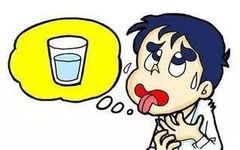Shan Yi Tang – Your Expert in Health and Wellness
The causes of Yin deficiency often stem from post-heat illnesses, prolonged chronic diseases that deplete Yin fluids, or excessive emotional stress, irregular sexual activity, and overconsumption of warming and drying substances, leading to a deficiency of Yin fluids and a loss of nourishing substances in the body. There is a saying: “Yin deficiency leads to internal heat,” as insufficient body fluids cannot control fire, resulting in symptoms such as five hearts heat (palms and soles), afternoon tidal fever, night sweats, flushed cheeks, weight loss, dry mouth and throat, a desire for cold water, yellow urine, dry stools, red tongue with little coating, etc. Let’s take a closer look at the symptoms and regulation methods for Yin deficiency in the five organs:
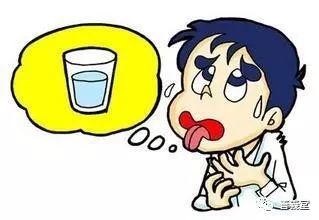
Yin Deficiency
1. Lung Yin Deficiency:
Lung Yin deficiency is characterized by common lung disease symptoms and internal heat due to Yin deficiency: cough without phlegm or with scanty sticky phlegm, dry throat and mouth, and weight loss. Afternoon tidal fever, five hearts heat, night sweats, flushed cheeks, and in severe cases, blood-streaked phlegm, hoarseness, red tongue with little moisture, and thin rapid pulse. Treatment principle: Nourish Yin and moisten the lungs. Main formula for prevention and treatment: Bai He Guo Jin Wan (Lily Bulb Solid Gold Pill).
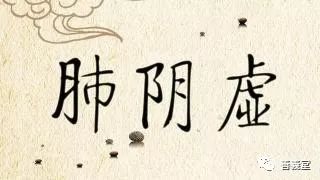
Lung Yin Deficiency
Regulation points:
Lung Yin deficiency is often caused by the invasion of dryness and heat, so treatment should focus on clearing and nourishing the lungs. In terms of Chinese herbs, it is advisable to use Mai Dong (Ophiopogon), Tian Dong (Asparagus), Bai He (Lily Bulb), Sheng Di Huang (Rehmannia), Ejiao (Donkey-hide Gelatin), Chuan Bei Mu (Fritillaria), Dang Gui (Angelica), Shao Yao (Peony), Gan Cao (Licorice), Xuan Shen (Scrophularia), and Jie Geng (Platycodon) to nourish Yin and moisten the lungs. In terms of diet, foods such as white fungus, black fungus, honey, snow pear, yam, white radish, lily, mung beans, and water chestnut can be used for regulation.
Chinese herbal regulation method: It is advisable to use Yang Yin Qing Fei Wan (Nourishing Yin and Clearing Lung Pill), Bai He Guo Jin Tang (Lily Bulb Solid Gold Decoction), Bu Fei Ejiao Tang (Nourishing Lung Ejiao Decoction), and Sha Shen Mai Dong Tang (Adenophora and Ophiopogon Decoction).
2. Heart Yin Deficiency:
This syndrome is characterized by common heart disease symptoms and Yin deficiency symptoms: often seen in individuals with insufficient liver and kidney, true Yin depletion, or in the later stages of heat illness where Yin has not yet recovered, leading to insufficient Yin blood, which cannot nourish the heart and calm the spirit, resulting in palpitations, insomnia, vivid dreams, forgetfulness, night sweats, restlessness, heat in the palms and soles, dry mouth and throat, red tongue tip, little coating, and thin rapid pulse. There may also be flushed cheeks, dizziness, and other symptoms. Treatment principle: Nourish heart Yin, clear the heart, and calm the spirit. Main formula for prevention and treatment: Tian Wang Bu Xin Dan (Heavenly Emperor Heart Nourishing Pill).
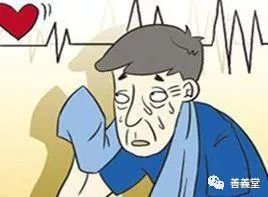
Heart Yin Deficiency
Regulation points:
1. In terms of diet, it is advisable to consume high-protein foods, focusing on nutritious and easily digestible meals. Fresh vegetables and fruits with a cooling nature should be consumed more. Spicy foods should be avoided to prevent further Yin depletion and worsening of the condition. 1. Sheng Di Huang 15g, Yu Zhu 10g, Dan Shen 10g, Xuan Shen 10g, Tian Dong 10g, Mai Dong 10g, Wu Wei Zi 6g, Yuan Zhi 10g, Bai Zi Ren 10g, Suan Zao Ren 12g; 2. San An Shen Wan (Calming the Spirit Pill) with modifications: Sheng Di Huang 12g, Dang Gui 10g, Huang Lian 6g, Zhu Mai Dong 10g, Bai Zi Ren 10g, Suan Zao Ren 12g, Bai He 15g, Lian Zi Xin 10g, Gan Cao 6g. The first formula is suitable for heart Yin deficiency with insufficient heart Qi; the second is suitable for heart Yin deficiency with excess heat. The above herbs should be decocted in water and taken in three doses daily for improvement.
3. Spleen Yin Deficiency:
Characterized by weak spleen function and signs of deficiency heat: insufficient spleen Yin leads to impaired transformation and transportation, resulting in reduced appetite, bland taste, abdominal distension after eating; accompanied by fatigue, weight loss, scanty saliva, dry lips, constipation, red urine, and five hearts heat. The tongue is red with dry coating or bare, and the pulse is thin and rapid or thin and choppy, indicating insufficient Yin fluids. Treatment principle: Strengthen the spleen and nourish Yin. Main formula for prevention and treatment: Spleen Yao Ma Ren Wan (Spleen Nourishing Hemp Seed Pill).
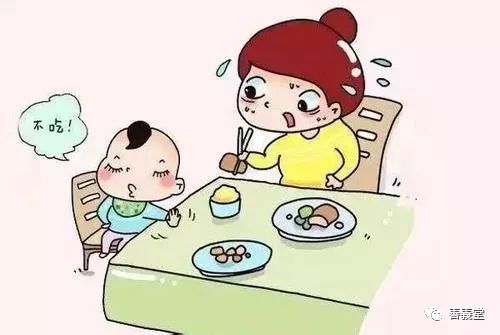
Spleen Yin Deficiency
Regulation points:
For the regulation of spleen Yin deficiency, TCM emphasizes “sweet and bland to nourish the spleen,” meaning it is suitable to use sweet and moistening foods. In terms of herbs, it is advisable to choose those that are warm but not drying, cool but not cold, and bland but not harmful, such as Huang Jing (Polygonatum), Yu Zhu (Polygonatum), Tian Hua Fen (Trichosanthes), Sha Shen (Adenophora), Mai Dong (Ophiopogon), and Ge Gen (Pueraria). In terms of diet, foods such as lotus seeds, yam, white lentils, purple rice, japonica rice, jujube, pig stomach, and coix seed can be used, which have a balanced nature. For those with both spleen Yin deficiency and spleen Qi deficiency, formulas such as Shen Ling Bai Zhu San (Ginseng and Poria Powder), Zi Sheng Wan (Nourishing Life Pill), Liu Shen San (Six Gods Powder), and Zi Yin Jian Pi Wan (Nourishing Yin and Strengthening Spleen Pill) can be used; for patients with spleen and stomach Yin deficiency, Sha Shen Mai Dong Tang (Adenophora and Ophiopogon Decoction) and Yi Wei Tang (Stomach Nourishing Decoction) are recommended.
4. Liver Yin Deficiency:
This syndrome is characterized by dizziness, dry eyes, and rib pain, along with symptoms of deficiency heat: dizziness, dry eyes, reduced vision, or dull pain in the ribs, facial heat or flushed cheeks, or twitching of hands and feet, dry mouth and throat, five hearts heat, tidal fever, night sweats, red tongue with little coating and lack of moisture, and thin rapid pulse. This indicates insufficient liver Yin and internal heat. Treatment principle: Nourish and strengthen liver Yin. Main formula for prevention and treatment: Yi Guan Jian (Liver Nourishing Decoction).
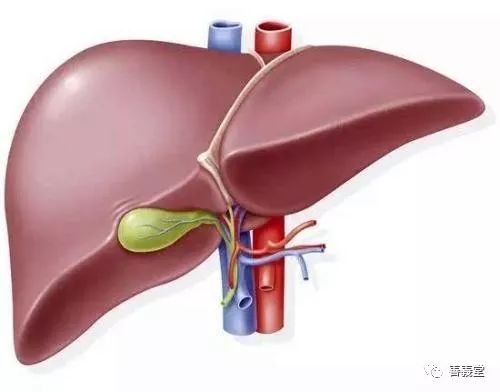
Liver Yin Deficiency
Regulation points:
Consume goji berries in tea, angelica in stews, or use fresh lotus leaves, fresh mint, and Mai Dong as tea substitutes to nourish Yin fluids and regulate liver Qi. A friend of mine had persistent twitching of the right eyelid due to business stress and refused to take medication, so I suggested using the above three herbs as tea substitutes. It is important to minimize staying up late and overexertion to protect liver Yin. Here, we emphasize the issue of staying up late. The time from 1 AM to 3 AM is when Qi and blood flow through the liver meridian, making it the best time to rest.
5. Kidney Yin Deficiency:
Kidney Yin deficiency is characterized by deficiency of kidney essence and signs of deficiency heat: dizziness, tinnitus, soreness in the lower back and knees, insomnia with vivid dreams, tidal fever, night sweats, five hearts heat, dry throat, flushed cheeks, red tongue with little moisture, and thin rapid pulse. In men, there may be nocturnal emissions, while women may experience scanty menstruation or amenorrhea. Treatment principle: Nourish kidney Yin. Main formula for prevention and treatment: Liu Wei Di Huang Wan (Six Flavor Rehmannia Pill), Zhi Bai Di Huang Wan (Anemarrhena and Rehmannia Pill), etc.
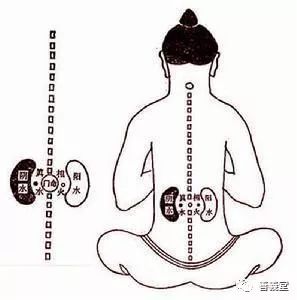
Kidney Yin Deficiency
Regulation points:
Those with kidney Yin deficiency should consume sweet, cool, and moistening foods that generate fluids and nourish Yin. Foods such as jujube peel japonica rice porridge, lily japonica rice porridge, white fungus and red date soup, and lily and lotus seed soup can be consumed in moderation. Additionally, black fungus, black sesame, and walnuts can be used for nourishment.
Prevention of Yin Deficiency:
Foods that have a nourishing effect on Yin can alleviate symptoms of Yin deficiency. Since Yin deficiency can lead to malnutrition in the body, it severely affects health and life activities, especially among urban white-collar women who are prone to symptoms such as heat in the palms and soles, night sweats, dry throat, and dry mouth. Timely Yin nourishment can not only prevent the onset of Yin deficiency symptoms but also regulate the adverse symptoms of endocrine disorders, achieving a preventive and therapeutic effect.
1. Individuals with Yin deficiency should consume more foods that nourish kidney Yin, focusing on nourishing Yin and subduing Yang. Commonly chosen foods include sesame, glutinous rice, mung beans, lotus root, malan head, cabbage, black fungus, white fungus, tofu, sugarcane, plums, peaches, watermelon, cucumber, lilies, yams, squid, soft-shelled turtle, sea cucumber, abalone, crab, milk, oysters, clams, jellyfish, duck meat, and pig skin. These foods are mostly sweet, cold, and moistening, all of which have the effect of nourishing the body’s Yin energy. They can be appropriately combined with Yin-nourishing medicinal dishes for targeted nourishment.
2. Individuals with Yin deficiency and excess heat should avoid spicy and fried foods, as well as hot pot and chicken. Lychee should be avoided among fruits. Yin deficiency is the only condition where cold drinks are not restricted; cold drinks can have a regulating effect on Yin deficiency, but moderation is encouraged.
3. Additionally, emotional regulation is very important for those with Yin deficiency. Individuals with Yin deficiency are most prone to “heat,” which manifests as irritability, restlessness, emotional fluctuations, and easily feeling “fiery.” Therefore, those with Yin deficiency should frequently remind themselves to calm their spirit and maintain a stable mindset, as well as learn to timely shift negative emotions.
Focus on major diseases, providing the most cutting-edge health and wellness information. For more exciting articles, please follow our WeChat public account Shan Yi Tang (shanyitang66). Shan Yi Tang cares for your family's health together!Content sourced from the internet, copyright belongs to the original author.

